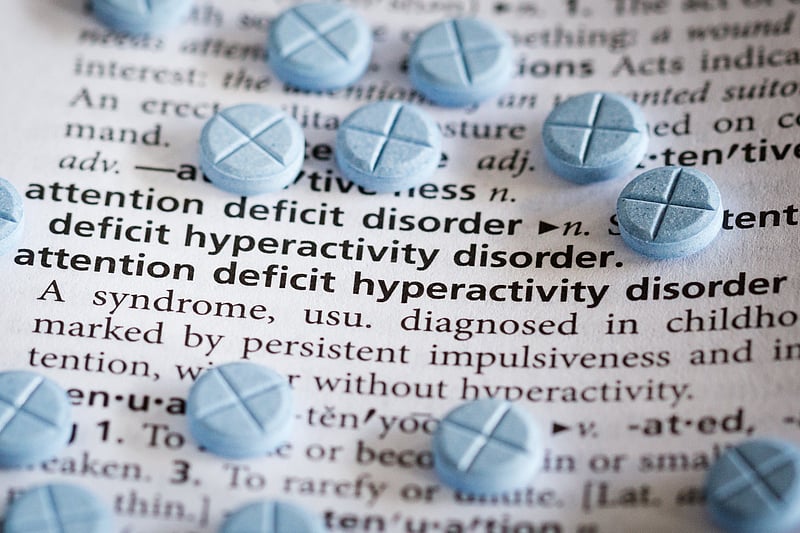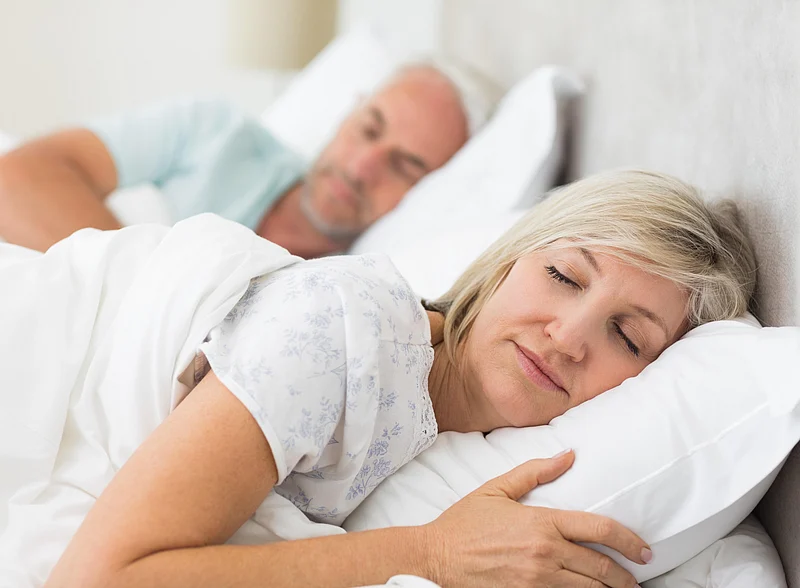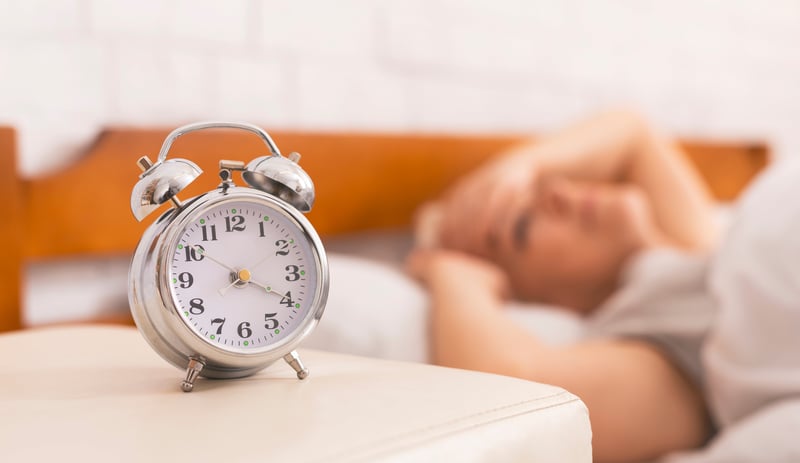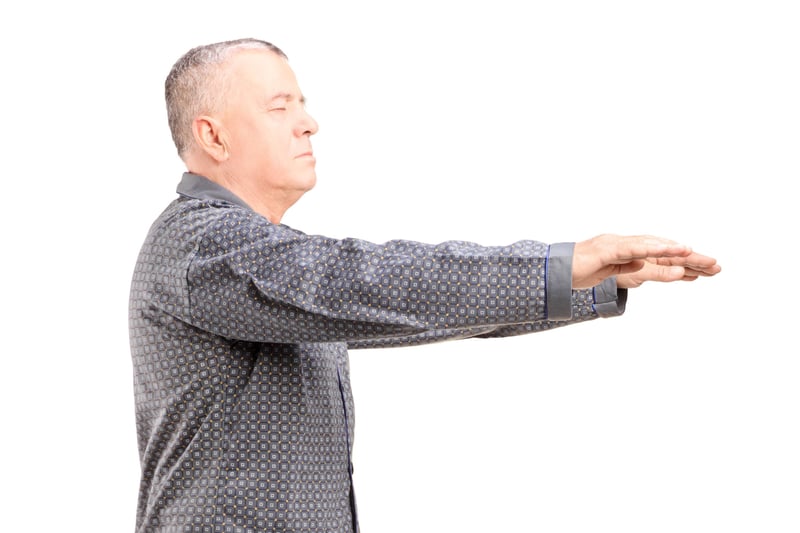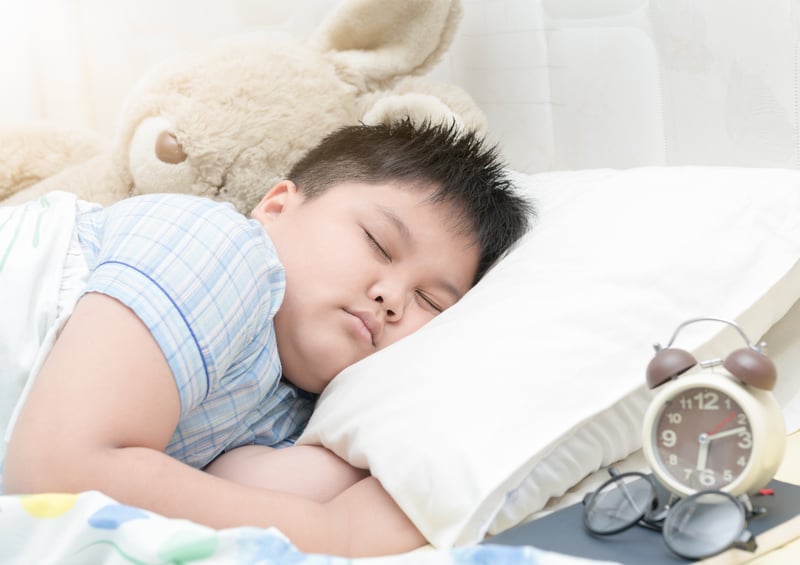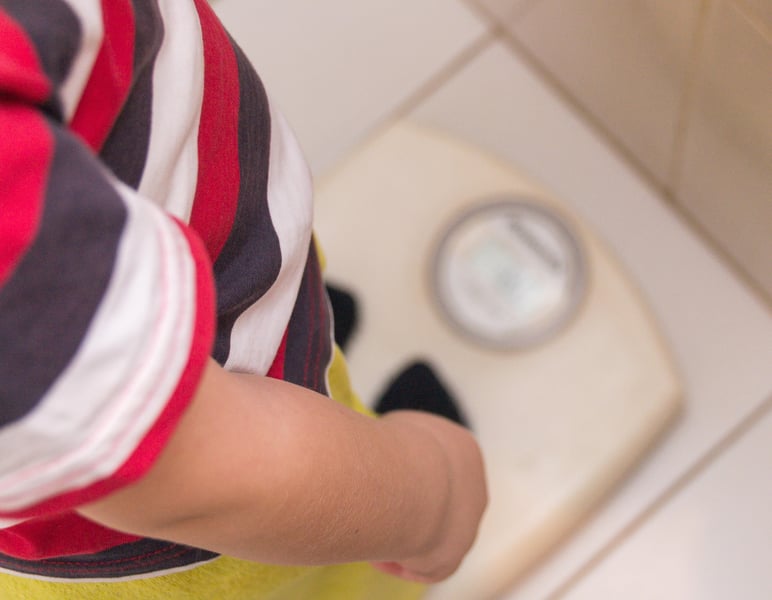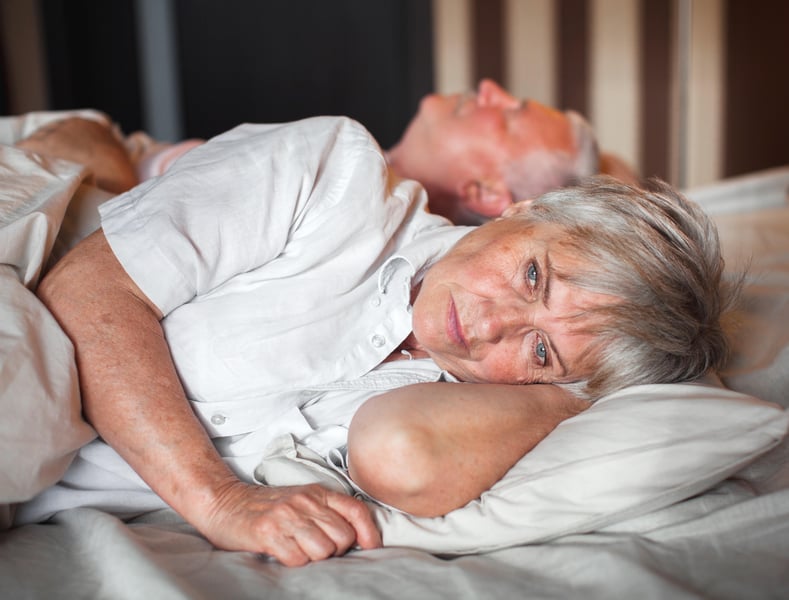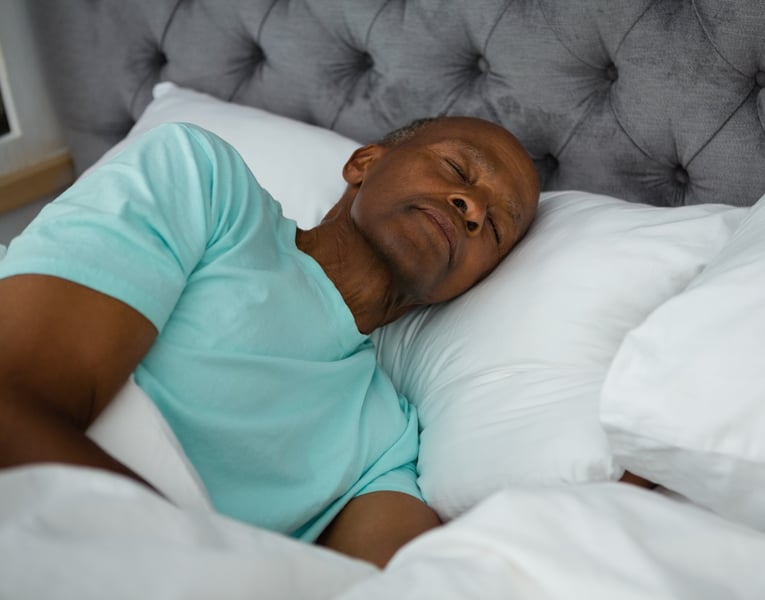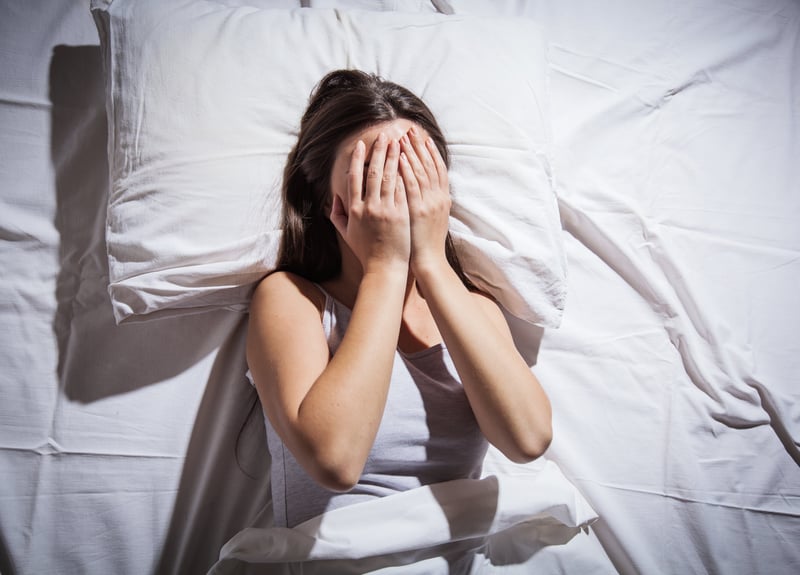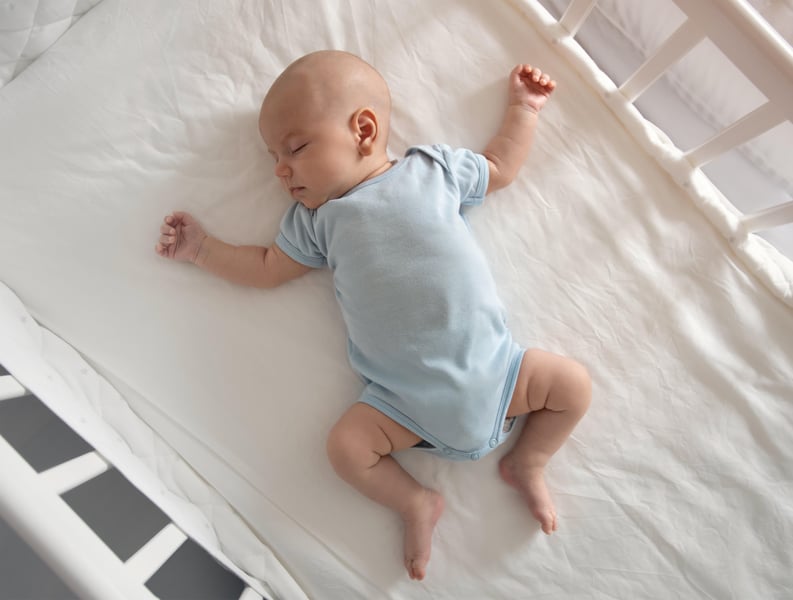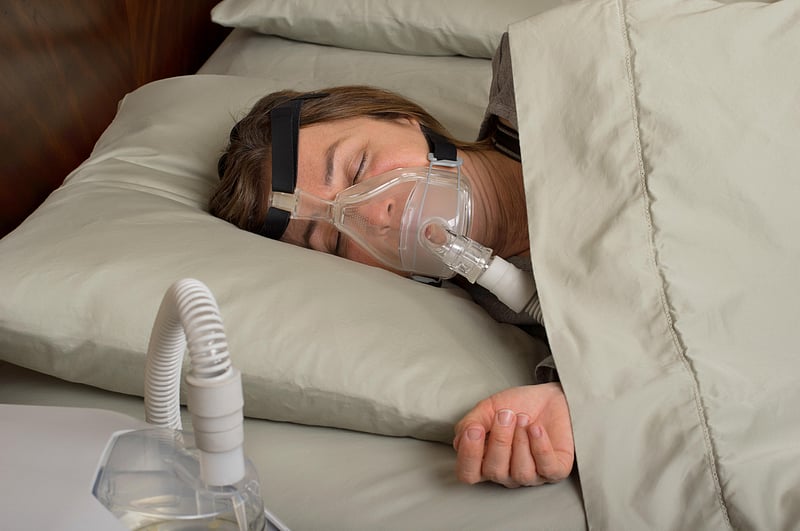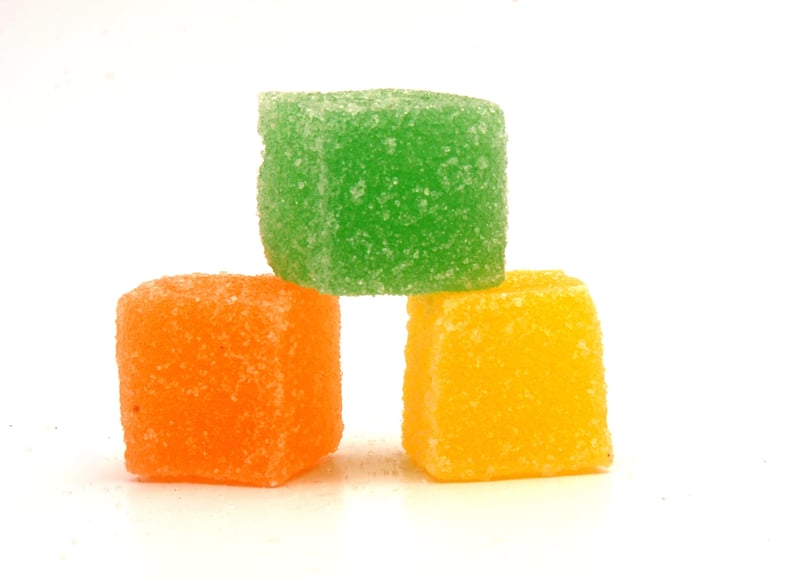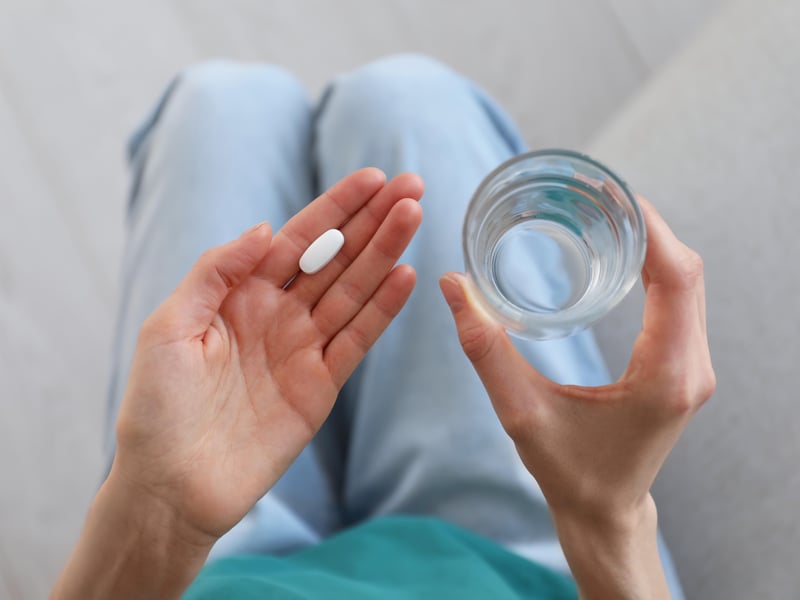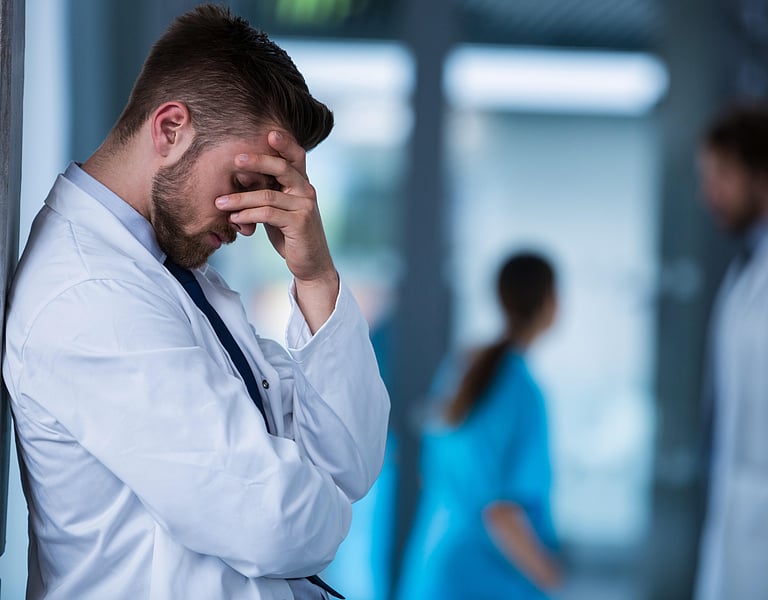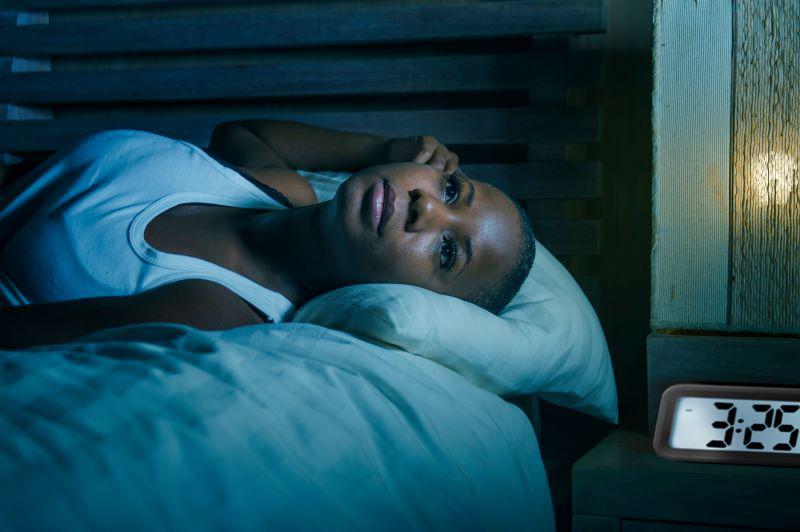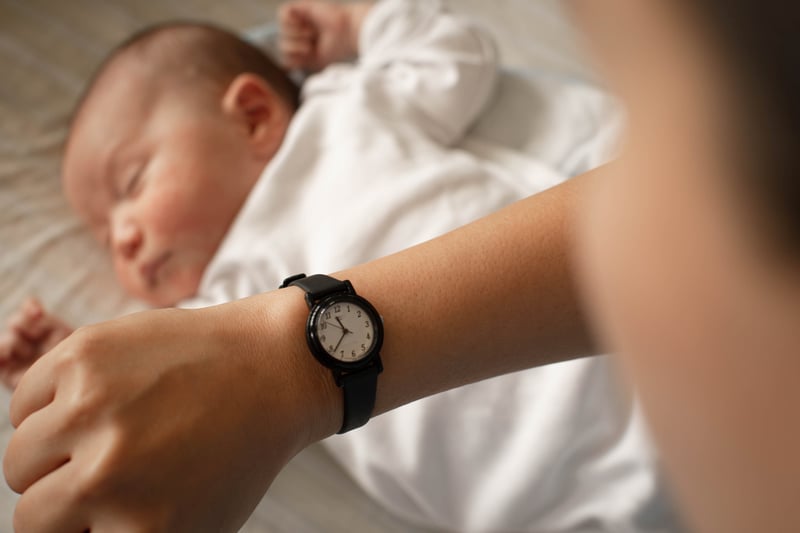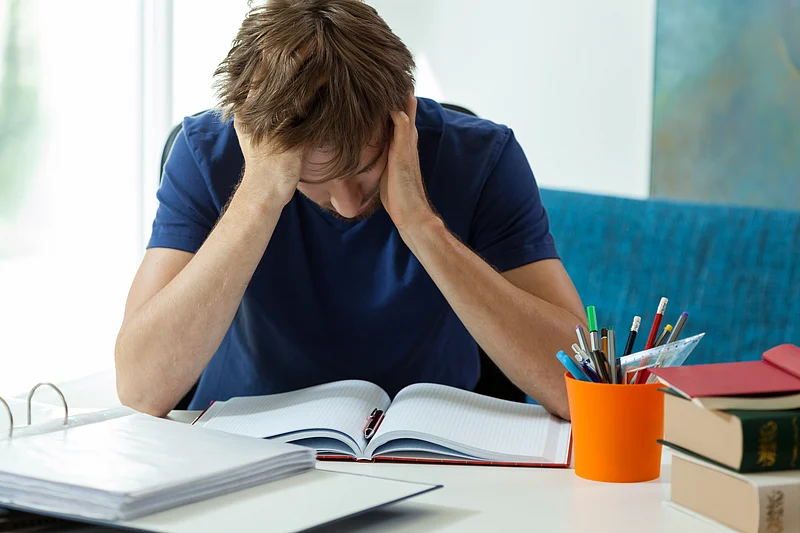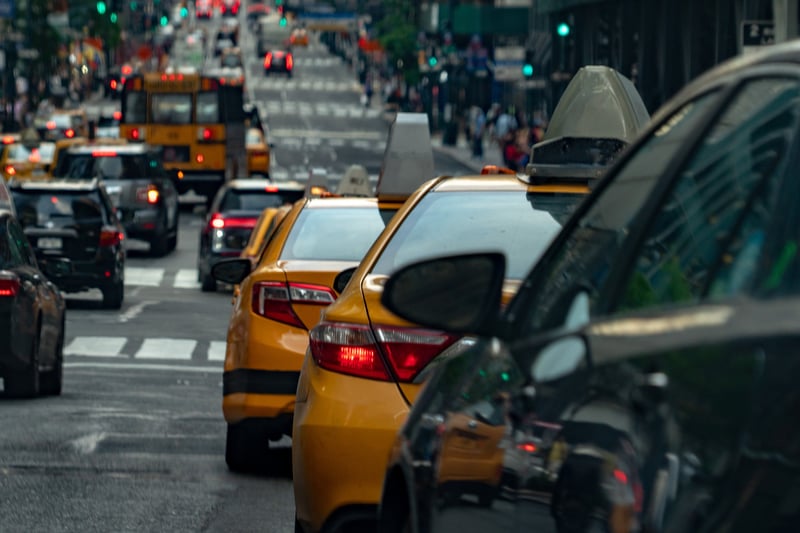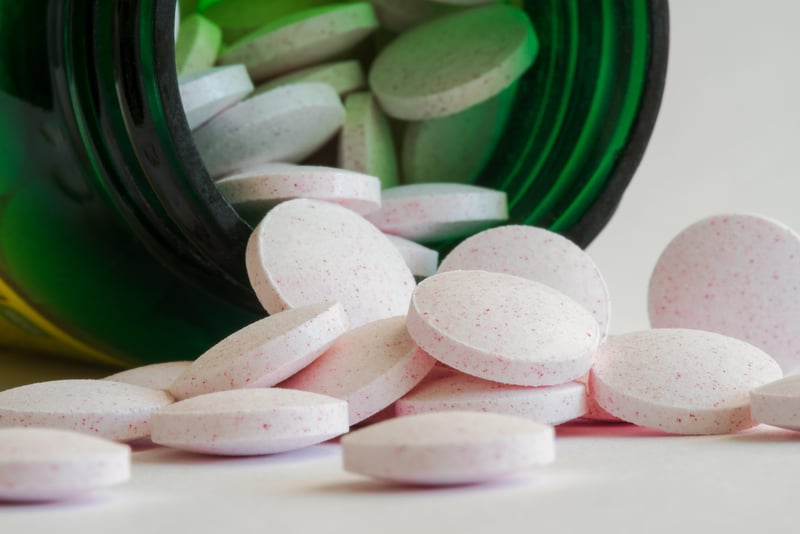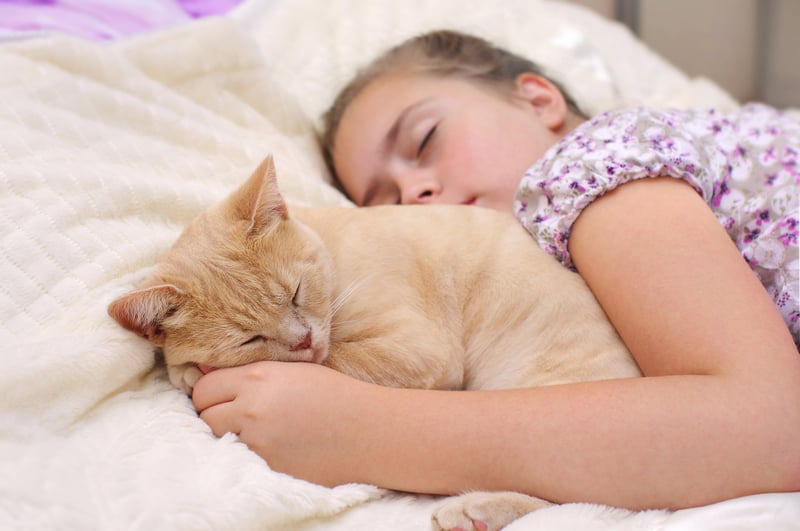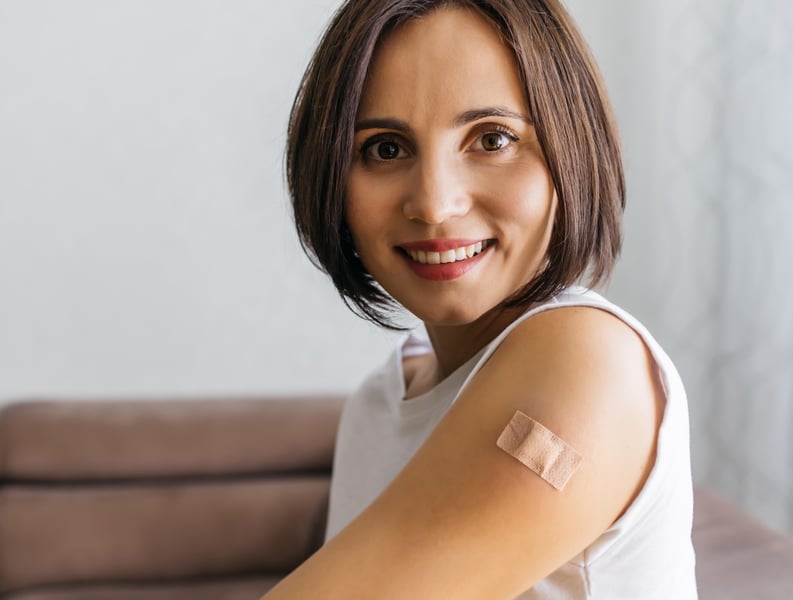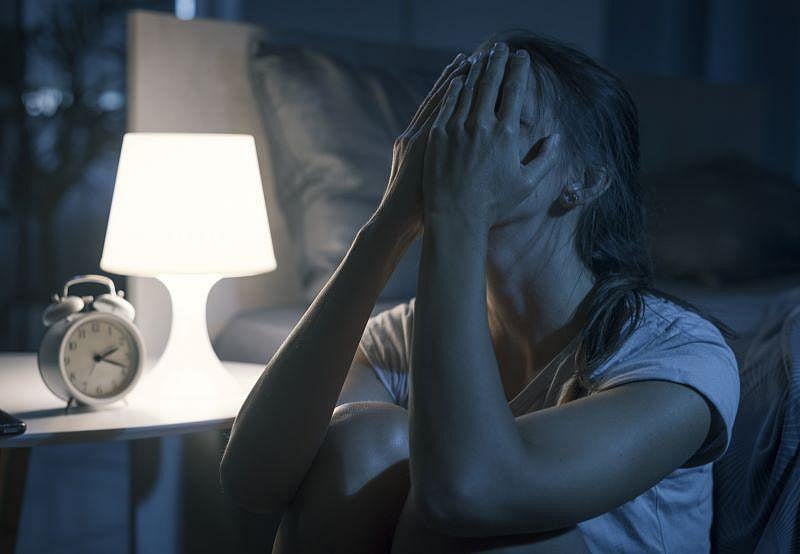Get Healthy!
Results for search "Sleep Problems: Misc.".
Health News Results - 161
A medication already approved for excessive daytime sleepiness may help ease attention-deficit/hyperactivity disorder (ADHD) symptoms in adults who aren't getting relief from available treatments, according to a small pilot study.
Solriamfetol is a nonstimulant drug that is approved for sleepiness caused by narcolepsy (sudden sleep attacks) and obstructive sleep apnea (marked by brea...
- HealthDay Reporter
- Denise Mann
- |
- October 11, 2023
- |
- Full Page
Americans are losing sleep over worries about money, a new survey reveals.
The American Academy of Sleep Medicine (AASM) polled about 2,000 U.S. adults, finding that 69% reported lost sleep due to concerns about job security and 75% were kept up with ...
- HealthDay Reporter
- Cara Murez
- |
- October 11, 2023
- |
- Full Page
One way to help lower the odds for long COVID in people with pre-existing conditions may be to get more sleep.
A new study discovered the risk was lower in those who slept six to nine hours a night compared to "short sleepers" who snoozed less.
"Habitual short nighttime sleep duration exacerbated the risk of long COVID in individuals with pre-existing conditions,"said senior study a...
- HealthDay Reporter
- Cara Murez
- |
- October 9, 2023
- |
- Full Page
Hot flashes and night sweats top the list of bothersome symptoms for women going through menopause.
Now, a new study suggests that hot flashes, especially during sleep, may be more than a nuisance: They may foreshadow Alzheimer's disease.
And the more hot flashes a woman experiences during sleep, the greater her risk for developing Alzheimer's disease, the most common type of ...
- HealthDay Reporter
- Denise Mann
- |
- September 27, 2023
- |
- Full Page
Everyone's seen a movie or TV show featuring someone sleepwalking -- eyes half-lidded, bumbling around, tripping over furniture.
But sleepwalkers are actually capable of much more complex behaviors during their restless slumber, a new paper says.
During sleep some people can engage in sex ('sexsomnia'), pig out on junk food, try to cook, have a lively conversation or even hop in the...
- HealthDay Reporter
- Dennis Thompson
- |
- September 27, 2023
- |
- Full Page
A healthy lifestyle -- especially getting enough sleep -- may offer substantial protection against depression, new research suggests.
The study, of more than 287,000 British adults, found that several lifestyle factors seemed to curb the risk of developing depression over the next nine years. Among them were eating a healthy diet, getting regular exercise, staying socially active, not smo...
- HealthDay Reporter
- Amy Norton
- |
- September 13, 2023
- |
- Full Page
Staying up late comes naturally to some folks, whether they're working or relaxing deep into the night.
But being a night owl might come at a cost to one's health.
People who are night owls have a higher risk than early birds of becoming diabetic, a new study has found.
"We found that night owls were at 72% increased risk of developing diabetes when we compare them to early bi...
- HealthDay Reporter
- Dennis Thompson
- |
- September 12, 2023
- |
- Full Page
Lots of parents are giving their children the supplement melatonin to help with sleep, but is it safe?
In a new survey, the American Academy of Sleep Medicine (AASM) found that 46% of parents -- what it called a "shocking number"-- have given melatonin to children under the age of 13. About 30% gave their teenager melatonin to aid in sleep.
Yet, there is little evidence that melato...
- HealthDay Reporter
- Cara Murez
- |
- September 9, 2023
- |
- Full Page
If your child is acting out and you're looking for solutions, researchers at the University of Georgia's Youth Development Institute suggest better sleep might be the answer.
Getting more hours of slumber could reduce impulsive behavior in kids, their new study showed.
"Stressful environments are shown to make adolescents seek immediate rewards rather than delayed rewards, but there...
- HealthDay Reporter
- Cara Murez
- |
- September 1, 2023
- |
- Full Page
Video games and social media are keeping school kids up at night, according to a new survey from the American Academy of Sleep Medicine (AASM).
But so, too, are more constructive pursuits, including homework and extracurricular activities, which can be a problem when it comes to setting a good sleep routine early in the school year.
"Getting enough sleep is just as crucial as nutrit...
- HealthDay Reporter
- Cara Murez
- |
- August 19, 2023
- |
- Full Page
Keeping to a consistent bedtime routine is the key to helping your kids get restful and refreshing sleep.
Fortunately, about 81% of parents with kids under 18 surveyed by the American Academy of Sleep Medicine (AASM) say that's happening in their house.
The AASM offers some sleep tips to start the school year off right.
"Setting a consistent bedtime routine is very important, ...
- HealthDay Reporter
- Cara Murez
- |
- August 13, 2023
- |
- Full Page
Poor sleep takes a toll, and catching up on the weekends just won't fix it, researchers report.
A small new study showed that heart rate and blood pressure, important measures of cardiovascular health, worsen as the week goes on when someone sleeps only about five hours a night.
Catching up on sleep over the weekends didn't return those health measures back to normal.
"Only 65...
- HealthDay Reporter
- Cara Murez
- |
- August 11, 2023
- |
- Full Page
Childhood obesity is concerning for many reasons, among them that the severity of the sleep disorder known as obstructive sleep apnea (OSA) grows with obesity levels and age.
A new study looked at the role of obesity in children's OSA. It adds to a growing awareness of the part ob...
- HealthDay Reporter
- Cara Murez
- |
- August 11, 2023
- |
- Full Page
More than one-third of coupled Americans who want better sleep are opting for a "sleep divorce."
They're not actually divorcing, but sleeping in another room so that they each sleep better.
"We know that poor sleep can worsen your mood, and those who are sleep deprived are more likely to argue with their partners. There may be some resentment toward the person causing the sleep dis...
- HealthDay Reporter
- Cara Murez
- |
- July 13, 2023
- |
- Full Page
Getting regular exercise can help protect against mental decline in an aging brain. But poor sleep can take away those benefits.
A new study found that people who were more active but slept less than six hours on average had faster cognitive (mental) d...
- HealthDay Reporter
- Cara Murez
- |
- July 7, 2023
- |
- Full Page
A lot of experts advise getting a good night's sleep. For Black Americans who have a gene variant linked to Alzheimer's disease, that rest could be protective, a new study says.
"This new finding suggests that someone with a high-risk variant might be able to overcome their genetic inheritance by improving their sleep habits,"said lead author
It's not the late nights, but the smoking and drinking that happen during those late nights, that are killing people who are "night owls"earlier in life, a new study claims.
Researchers studied twins in Finland for 37 years, looking at different chronotypes, the body's natural inclination to sleep at a certain time.
Although they saw that the evening types had a slightly increased r...
- HealthDay Reporter
- Cara Murez
- |
- June 23, 2023
- |
- Full Page
It is already known that getting enough sleep is vital to good health, but now new research suggests that having a sleep disorder is linked to suicidal thoughts in children, teens and young adults.
Treating these sleep issues could be an inroad to improving their mental health, the study authors suggested.
"People so often think of sleep disorders as being a symptom of other mental ...
- HealthDay Reporter
- Cara Murez
- |
- June 19, 2023
- |
- Full Page
Going to bed earlier is one way for teens to get the sleep they need, new research suggests.
That may be easier said than done, the researchers admitted. But their study shows that if you can get teens to go to bed earlier, they will increase their time asleep by 41 minutes for each additional hour in bed.
"The idea that there's a circadian phase delay that prevents teens from going...
- HealthDay Reporter
- Steven Reinberg
- |
- June 12, 2023
- |
- Full Page
After many nights of tossing and turning, you might have more to worry about than just feeling exhausted and less sharp at work.
Insomnia symptoms -- trouble getting to sleep or staying asleep, or waking up too early -- are also associated with higher risk of stroke, according to new research from Virginia Commonwealth University.
And the risk is greater if you're younger than ...
- HealthDay Reporter
- Cara Murez
- |
- June 8, 2023
- |
- Full Page
Teens need their sleep, and a new study sheds light on one way to help them get it: Keep cellphones and screens out of the bedroom.
"Getting enough sleep is crucial for teenagers because it helps their body and mind grow and develop properly,"said lead author Dr. Jason Nagata, an assistant professor of pediatrics at the ...
- HealthDay Reporter
- Cara Murez
- |
- May 30, 2023
- |
- Full Page
Researchers have found another clue as to why some infants die suddenly in their sleep, and it's related to a faulty chemical receptor in the brainstem.
Experts said the findings provide another puzzle piece in understanding the root causes of sudden infant death syndrome (SIDS).
By examining autopsied brain tissue, researchers found that a particular chemical receptor was altered ...
- HealthDay Reporter
- Amy Norton
- |
- May 25, 2023
- |
- Full Page
Lightbulb inventor Thomas Edison believed a little shuteye could boost his creativity. Contemporary scientists think the iconic innovator was on to something.
But timing is key, they say.
"We found a strong effect of 'sleep onset' on creativity,"said study author Kathleen Esfahany, an undergradua...
- HealthDay Reporter
- Alan Mozes
- |
- May 15, 2023
- |
- Full Page
Poor sleep brought on by sleep apnea may ultimately undermine the brain health of older men and women, new research suggests.
The concern stems from a new brain scan investigation that involved 140 sleep apnea patients.
"Sleep apnea is a medical condition in which patients ... stop breathing during sleep, which can affect their sleep quality by causing multiple arousals and dropping...
- HealthDay Reporter
- Alan Mozes
- |
- May 11, 2023
- |
- Full Page
Getting good sleep is an important part of wellness for many reasons, but new research suggests deep sleep may even guard against memory loss linked to Alzheimer's.
While disrupted sleep has been linked with accumulating beta-amyloid plaques in the brain faster, scientists found that superior amounts of deep, slow-wave sleep can be protective against memory decline in those with a high bu...
- HealthDay Reporter
- Cara Murez
- |
- May 5, 2023
- |
- Full Page
Changing the clocks every spring and fall might seem challenging, but a new study reveals that only one of those changes had a tendency to increase sleep disorders.
The transition from daylight saving time to standard time in the fall -- when people gain one hour overnight -- was associated with a brief rise in sleep disorders, including difficulty going to sleep or staying asleep.
...
- HealthDay Reporter
- Cara Murez
- |
- May 4, 2023
- |
- Full Page
Add airplane noise to the list of issues keeping people up at night, at least for those who live near U.S. airports.
Researchers found that exposure to airplane sounds -- even at moderate levels -- increased the odds of short sleep.
They reported that people exposed to airplane noise levels as low as 45 decibels (dB) tended to sleep fewer than seven hours a night.
Really, 45 d...
- HealthDay Reporter
- Cara Murez
- |
- May 3, 2023
- |
- Full Page
If you're longing for a nap, try to keep it short.
Researchers found that siestas of 30 minutes or more in Murcia, a region of Spain, where it's common to nap, were linked to a higher risk of obesity, a group of conditions called metabolic syndrome and high blood pressure.
"Not all siestas are the same. The length of time, position of sleep and other specific factors can affect t...
- HealthDay Reporter
- Cara Murez
- |
- April 27, 2023
- |
- Full Page
When U.S. health officials reported a 500% spike in the number of poison center calls involving kids eating melatonin gummies last year, Harvard researchers decided to take a closer look at the sleep supplements and discovered a disturbing fact: They contained up to 347% more melatonin than the label stated.
What's more, five of the products also contained CBD in higher amounts than the l...
- HealthDay Reporter
- Amy Norton
- |
- April 25, 2023
- |
- Full Page
Need to get your shut-eye on time? What you eat could make a difference, according to a new study.
Researchers found that college athletes who ate more carbohydrates and vitamins B12 and C tended to go to sleep and wake up earlier.
It's possible that these nutrients might increase synthesis of vital hormones that regulate sleep, including serotonin and melatonin, the authors said.
- HealthDay Reporter
- Cara Murez
- |
- April 24, 2023
- |
- Full Page
Taking a particular sleep medication may help stave off Alzheimer's disease, but it's too soon to say for sure after a preliminary study.
Researchers at Washington University School of Medicine in St. Louis found that participants who took a sleeping pill called suvorexant before bed had a drop in levels of key Alzheimer's disease proteins.
"This is a small, proof-of-concept study. ...
- HealthDay Reporter
- Cara Murez
- |
- April 21, 2023
- |
- Full Page
Consistently good sleep is important for everyone, but it is particularly important for patients with schizophrenia, a new study suggests.
Researchers from the University of Pittsburgh, along with collaborators in Italy, used wrist monitors to measure activity and rest in 250 people, including 150 patients with schizophrenia, in both outpatient settings and in psychiatric hospitals.
<...- HealthDay Reporter
- Cara Murez
- |
- April 17, 2023
- |
- Full Page
Early-career doctors were more likely to make mistakes when they had long work weeks or extended shifts, new research reveals.
Their patients were also more likely to experience adverse events as a result, according to the study. Moreover, doctors in their second year of training or abo...
- HealthDay Reporter
- Cara Murez
- |
- April 14, 2023
- |
- Full Page
Daytime naps longer than a half-hour appear to nearly double a person's risk of developing an irregular heartbeat, a new study reports.
People who nap 30 minutes or more a day have a 90% higher risk of developing the heart rhythm disorder atrial fibrillation (a-fib) than those who take shorter naps, according to research presented Thursday at a meeting of the
Four out of 10 people who have lingering health issues after COVID-19 infection can count bothersome sleep problems among them.
About 41% of those with so-called long COVID have moderate to severe sleep issues, according to new research from the Cleveland Clinic in Ohio. Black patients are three times more likely to develop these sleep disturbances.
"Sleep difficulties and fatigue ...
- HealthDay Reporter
- Cara Murez
- |
- April 7, 2023
- |
- Full Page
Elation and exhaustion often go hand in hand when you're a parent to a baby.
When sleep starts to seem like a fantasy, it's good to know that the experts say there is a time when most babies will sleep through the night. Here, they share when that is, offer guidance on what impacts your baby's sleep and give some tips on how you can help guide them to sleep longer.
What can...
- HealthDay Reporter
- Kirstie Ganobsik
- |
- April 6, 2023
- |
- Full Page
Sleep problems -- from snoring to sleeping too much or too little -- may be associated with elevated stroke risk, researchers say.
Snorting during sleep, having poor quality of sleep and sleep apnea may also be linked with greater risk of stroke, according to study findings published online April 5 in the journal Neurology.
"Not only do our results suggest that individual s...
- HealthDay Reporter
- Cara Murez
- |
- April 6, 2023
- |
- Full Page
Early morning college classes can be a prescription for poor attendance and lower grades, a new study suggests.
But starting classes later boosted both, as students got more sleep, were more likely to attend and were less likely to be groggy, which leads to better grades, researchers reported.
"Early morning classes likely impair learning due to effects on presenteeism -- being...
- HealthDay Reporter
- Steven Reinberg
- |
- March 30, 2023
- |
- Full Page
Your body's internal clock appears to play a big part in the time of day when severe headaches happen.
Migraines and cluster headaches have different characteristics and treatments, but experts have long noted that they share key features: Both are neurological diseases in their own right, rather than symptoms of another underlying condition. And because neither can be easily identified ...
- HealthDay Reporter
- Alan Mozes
- |
- March 30, 2023
- |
- Full Page
Living with a lot of transportation noise can increase your risk of suicide, new research suggests.
A study from Switzerland found that with every 10-decibel increase of average road traffic noise at home, risk for suicides rose by 4%. An association between railway noise and suicide was less pronounced.
"We used suicides as an indicator for mental health disorders as we do not have...
- HealthDay Reporter
- Cara Murez
- |
- March 30, 2023
- |
- Full Page
For depressed or anxious children, taking melatonin may afford a good night's sleep and, as a result, lower the odds they will harm themselves, new research suggests.
The risk of self-harm increased before melatonin was prescribed and decreased by about half after kids started taking the supplement,
While thinking declines can be a common symptom of multiple sclerosis in women, new research suggests sleep, or lack of it, could be making matters worse.
"Sleep disorders have gained substantial recognition for their role in cognitive [thinking] decline, which affects up to 70% of people with multiple sclerosis,"explained study author
If your bedtime routine includes snuggling up with your Boston terrier or lulling yourself to sleep to the gentle purrs of your calico cat, you might want to rethink it.
Pets can offer a sense of security and comfort, but sharing a bed with them may lead to wakeful nights, according to a new study.<...
- HealthDay Reporter
- Cara Murez
- |
- March 17, 2023
- |
- Full Page
Your eyes close and your mind shuts down the second your head hits the pillow, but you wake up 10 hours later still feeling tired.
Many people complain about sleeping too little, but some struggle with the opposite problem: oversleeping.
Oversleeping, or hypersomnia, is a sleep disorder characterized by complaints of excessive daytime sleepiness occurring regularly or often, ev...
- HealthDay Reporter
- Shirley Eichenberger-Archer
- |
- March 15, 2023
- |
- Full Page
It may be possible to nudge your vaccine to work a little better. The trick is a good night's sleep.
Sleep helps the immune system respond to vaccination, according to a new meta-analysis of past research, published March 13 in Current Biology.
In it, researchers found that people who slept fewer than six hours per night produced significantly fewer antibodies than people w...
- HealthDay Reporter
- Cara Murez
- |
- March 14, 2023
- |
- Full Page
If you were asked your favorite sleep position, you'd probably be able to answer pretty quickly.
But it can be a little trickier to figure out the best sleeping position -- one that helps you reduce your aches and pains and maximize the enormous health benefits that research has shown<...
- HealthDay Reporter
- Kirstie Ganobsik
- |
- March 13, 2023
- |
- Full Page
When work, parenting and a packed social schedule leave you little time for shut-eye, you might think that getting by on just six hours of sleep a night is a good compromise.
If so, you're not alone.
According to the U.S. Centers for Disease Control and Prevention, over 25% of U.S. adults don't meet the...
- HealthDay Reporter
- Kirstie Ganobsik
- |
- March 10, 2023
- |
- Full Page
The annual shift to daylight saving time is a challenge for many parents, whose children may struggle with the change.
A pediatrics sleep medicine expert offers some tips for making springing forward a little easier for all ages.
"Whether it be jet lag, spring break or daylight saving time, a break in sleep structure can make things challenging. But we have ways to cope with that,"s...
- HealthDay Reporter
- Cara Murez
- |
- March 10, 2023
- |
- Full Page
There's nothing worse than having trouble falling asleep or staying asleep. Watching the time go from minutes to hours only stresses you out and decreases the chance of a good night's rest.
Is it time to try melatonin supplements, a popular sleep aid?
Plenty of folks might want to know: In a recent study from the U.S. ...
- HealthDay Reporter
- Mandi Harenberg
- |
- March 9, 2023
- |
- Full Page
Tossing and turning, waking up frequently or lying awake for hours is no laughing matter.
According to the National Sleep Foundation, the average adult should aim for seven to nine hours of sleep each night. Why? The

